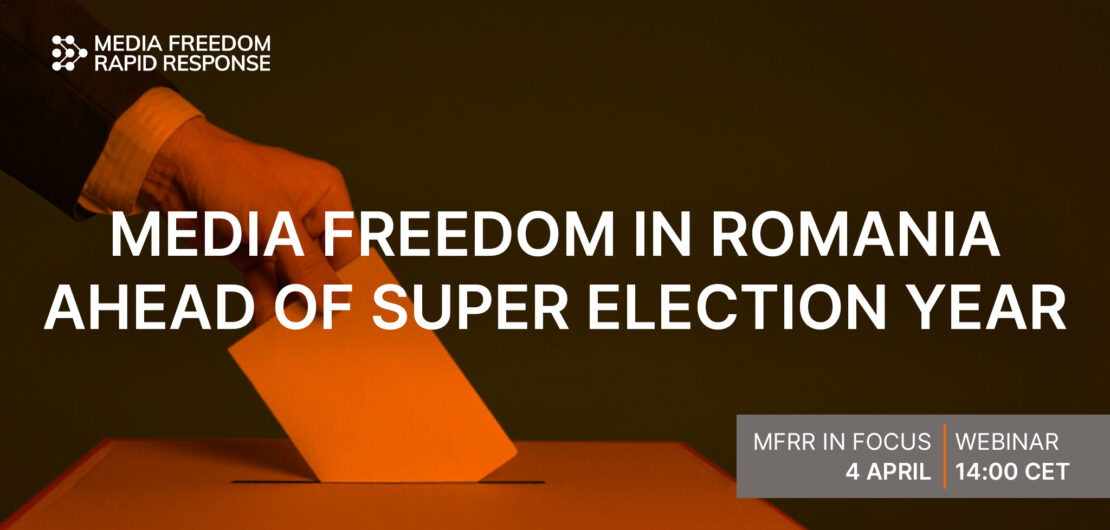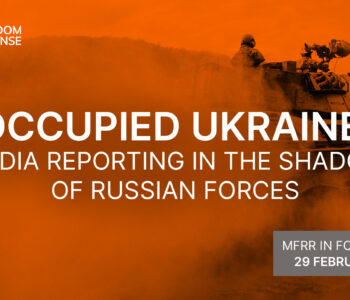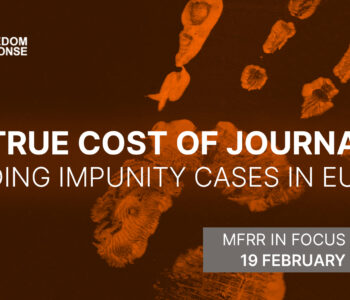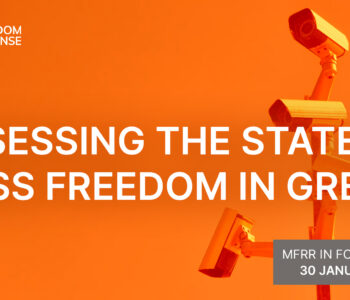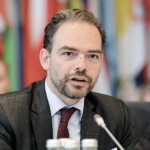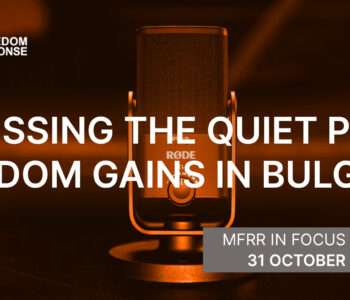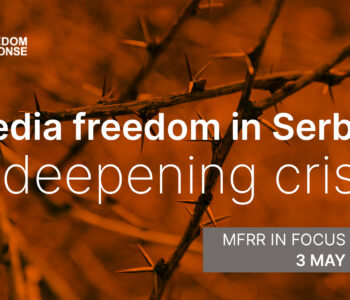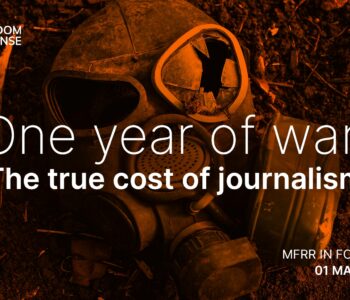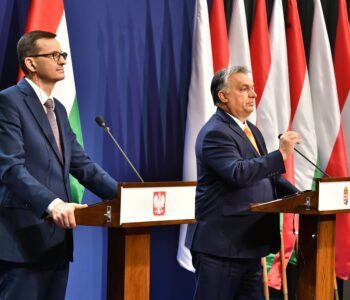The European Union’s institutions are well aware of the concerted, structural attacks on media freedom and pluralism in Hungary and Poland plus several other member states, and the European Commission’s flagship annual rule of law reports are proof of that.
However, the EU’s treatment of the media freedom crises in Poland and Hungary, which are part of a broader backsliding of the rule of law, has been fragmented and differs qualitatively from the EU’s response to the assaults on judicial independence, academic freedom, or migrants’ rights by the Fidesz and PiS governments.
Other than monitoring the violations of media freedom and pluralism in the two Visegrad states the EU’s response has been limited to some action in the scope of the Article 7 Rule of Law procedure against Hungary, and a single EU law infringement action against the Hungarian government contesting the media regulator’s independence and accusing it of discriminatory action following its decision not to renew the license of independent radio broadcaster Klubrádió.
Frustrated by the lack of legal tools available to it, the European Commission is seeking new EU-wide legislation in the form of the European Media Freedom Act (EMFA), presented in September, that would harmonize some aspects of regulation over public and private media in member states.
Until now, public and private media regulation has been mainly the responsibility of member states. With no legal mandate to act on media freedom issues, the Commission has based the EMFA on rules protecting the single market.
Meanwhile, the Council of Europe has developed extensive standards for public media and media pluralism and the EMFA is a welcome opportunity to turn some of these standards into binding law in EU member states.
While the EMFA has not been devised solely to address the challenges that the current governments in Budapest and Warsaw have posed to media freedom and pluralism, the draft regulation holds specific promises in this regard.
New rules, new regulations
The first concern in Hungary and Poland is the media regulators’ lack of independence. The Media Council in Hungary, and, in Poland, the National Broadcasting Council (Krajowa Rada Radiofonii i Telewizji, KRRiT) and the PiS-established National Media Council (Rada Mediów Narodowych) are part of the respective governments’ informal power grab. Loyalists with links to the governing parties dominate these media regulators, which have contributed to limiting media freedom.
In 2020, the Hungarian Media Council did not renew Klubrádió’s license, forcing the station to move online with a limited audience. After Fidesz secured a fourth term in power in April 2022, the regulator refused to renew the license of non-profit Tilos Rádió, citing violations of rules on the use of inappropriate language on air. Tilos won back the licence in the subsequent application process.
In Poland, in 2020/2021, KRRiT delayed the renewal of the broadcasting licenses of the television broadcasters TVN24 and TVN7, which are owned by the U.S. company Warner Bros. Discovery. In 2017, KRRiT fined TVN for reporting about a protest; the fine was rescinded in 2022.
The EMFA seeks to nurture greater independence through the enhanced European Board of Media Services that promotes cooperation between the national regulators. It doesn’t enhance any standards, but it does endorse the requirements of independence of national regulatory set out in Article 30 of the 2018-revised Audiovisual Media Services Directive (AVMSD), which Hungary and Poland already transposed.
This means that the media regulators are required to be independent of political and business influence and exercise their powers impartially and transparently, in keeping with principles of media pluralism, cultural and linguistic diversity, consumer protection, accessibility, non-discrimination, the proper functioning of the internal market, and the promotion of fair competition. It also prohibits media regulators from seeking or taking instructions from any other bodies regarding the assigned tasks.
If it so wished, the European Commission could already have started infringement proceedings against the biased decisions of media regulators in Hungary and Poland that are detrimental to media freedom and pluralism, based on Article 30 AVMSD. The time to do so is of the essence, especially as the European Parliament elections and local elections in Poland and Hungary are approaching in 2024.
EU law protects European voters’ rights to participate in the EP and elections that are free and fair. The OSCE/ODIHR found in election observation mission reports on general elections in Hungary in 2018 and 2022 and in general elections in 2019 and presidential elections in 2020 in Poland that the elections were tarnished by the apparent bias of public media towards the governing majority or incumbent president and that public broadcasters failed in their duty to provide impartial coverage.
Moreover, the EMFA envisages the creation of the European Board for Media Services, which would succeed the European Regulators Group for Audiovisual Media Services (ERGA) and include national media regulators’ representatives. The Board would advise the Commission on regulation and EU law application issues. It is yet unclear how the Board could insulate itself from internal disruption by rogue member states that are systematically assaulting media freedom and pluralism and quite successfully playing catch-me-if-you-can with Brussels.
Unwinding media capture
Another significant problem is the media capture process, particularly advanced in Hungary and mimicked in Poland. Fidesz has captured media through a network loyal oligarchs, who in 2018 “donated” media to the Central European Press and Media Foundation (Közép-Európai Sajtó és Média Alapítvány, KESMA). Outside of KESMA, the process of forcing journalists to resign or closing some captured media outlets continues.
The PiS party in Poland used the state-controlled oil and gas company PKN Orlen in 2021 to acquire the country’s the most prominent regional daily newspaper group, Polska Press, from the German publisher Verlagsgruppe Passau. The transaction raised major concerns about editorial independence and media concentration. The EMFA would require member states to carry out a “media pluralism and independence” test when taking any new regulatory measures that impact the media market. It would apply, for instance, to decisions impacting media concentration or on private media licensing.
Governments in Hungary and Poland also boost friendly private media with state funds through advertising and partnerships. The EMFA would include rules enhancing transparency and fairness in the allocation of state advertising to media outlets. It would require member states to distribute state advertising to media in a non-discriminatory way.
Article 24 would further require member states’ central and local governments to publish a list of the media supported with public funds and the amounts allocated to them. The national media regulators would be responsible for verifying government-provided information. Without independent regulators however, this provision is unlikely to be effective.
Strengthening the existing toolbox
It is uncertain what shape the EMFA will eventually take in the long EU legislative process. Several objections have been posed to it from interest groups, notably European association of press publishers. Moreover, member states governments may raise objections to specific elements of the act.
Negative developments regarding media freedom impact also other member states than Hungary and Poland, where such problems further entrench democratic backsliding. Greece scores the lowest among member states on RSF’s Press Freedom Index. In the countries ranking high in media freedom, threats of media concentration in the hands of businesspeople with solid political agendas risk destabilizing the electoral process. The opposition to various solutions included in the EMFA may come from a variety of interest groups.
It must also be emphasized that although the EMFA brings some opportunities, focusing on developing new legislation should not be an excuse for not taking action, as the EU already has avenues for legal actions to protect media freedom and pluralism in member states and could apply more political pressure, for example, at the Article 7 hearings against Hungary. The Council should also consider expanding the Article 7 procedure against the Polish government to include specific issues negatively affecting media freedom and pluralism. For now, the EU is not acting as strongly as it could.
Anna Wójcik, PhD, is an assistant professor at the Institute of Legal Sciences of the Polish Academy of Sciences. She was Re:Constitution fellow at the CEU Democracy Institute in 2022. She specializes in the rule of law and freedom of expression. As RethinkCEE program fellow, has recently published with the German Marshall Fund of the United States a policy report on the EU’s response to the media freedom and pluralism backsliding in Hungary and Poland.
